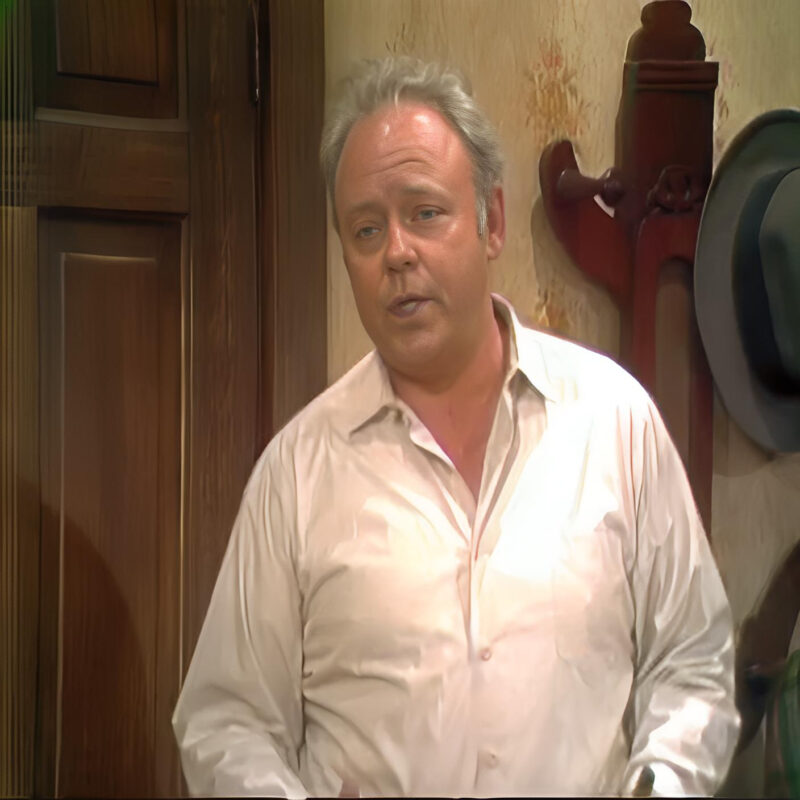
Carroll O’Connor immortalized the character of Archie Bunker on CBS’s groundbreaking show All in the Family, playing the role for nine seasons and continuing for another four seasons in the spinoff Archie Bunker’s Place.
Archie Bunker: A Controversial Yet Beloved Character
Archie Bunker, a working-class father in Queens, was flanked by his cheerful wife, Edith (Jean Stapleton); outspoken daughter, Gloria (Sally Struthers); and politically vocal son-in-law, Michael Stivic (Rob Reiner). Archie was notorious for his bigoted views on women, people of color, and sexuality, with much of the show’s drama stemming from Mike’s challenges to his prejudices.
The Inspiration Behind Archie Bunker
Norman Lear, who co-created All in the Family with Bud Yorkin, drew inspiration for Archie from two sources: his own father and a character from the British sitcom Till Death Do Us Part. Lear’s father, Herman Lear, was a gruff salesman with a troubled past, often in legal trouble and sharing many of Archie’s flaws and prejudices. Archie’s sayings, such as calling Mike “the laziest white man he ever met” and telling Edith to “stifle herself,” were directly lifted from Herman Lear.
A Complex Character Rooted in Personal History
Despite Archie’s many flaws, Lear crafted him as a complex and contradictory figure, much like his own father. This personal connection added depth and nuance to Archie’s character. Lear shared that while his father was difficult, he was also lovable. “I can’t overstate how much I loved him,” Lear said, emphasizing the complexity of his feelings.
Michael Stivic: A Reflection of Norman Lear
If Archie was modeled after Lear’s father, Michael Stivic, Gloria’s husband, was somewhat modeled after Lear himself. Much of All in the Family featured Michael as a counterpoint to Archie’s bigotry, mirroring Lear’s own arguments with his father. Archie’s first words about Mike, calling him a “meathead” (dead from the neck up), were another direct quote from Lear’s father. Historian Jim Cullen notes that these arguments embodied the generational conflict of the time, allowing for exploration and dialogue about major social issues.
Borrowing from British Television
While All in the Family was deeply personal, Lear also drew heavily from BBC1’s Till Death Do Us Part. He purchased the American rights to the show, which featured notable parallels to its American counterpart. Archie was based on Alf Garnett, a character with a similar disposition, who had a well-meaning wife, Else, and a daughter married to a socialist named Mike. Although Alf referred to his wife as a “silly old moo” rather than Edith’s “dingbat,” the characters’ tempers, prejudices, and attitudes were much the same. However, Archie was softened for American audiences, making him more relatable and open to change.
Legacy and Impact
All in the Family has been hailed as one of the greatest television series in history, tackling issues such as racism, infidelity, homosexuality, rape, religion, miscarriages, abortion, breast cancer, and the Vietnam War. The show’s legacy is a testament to the brilliant performances of its cast and the genius of Norman Lear, who infused the series with both personal history and broader social commentary.
